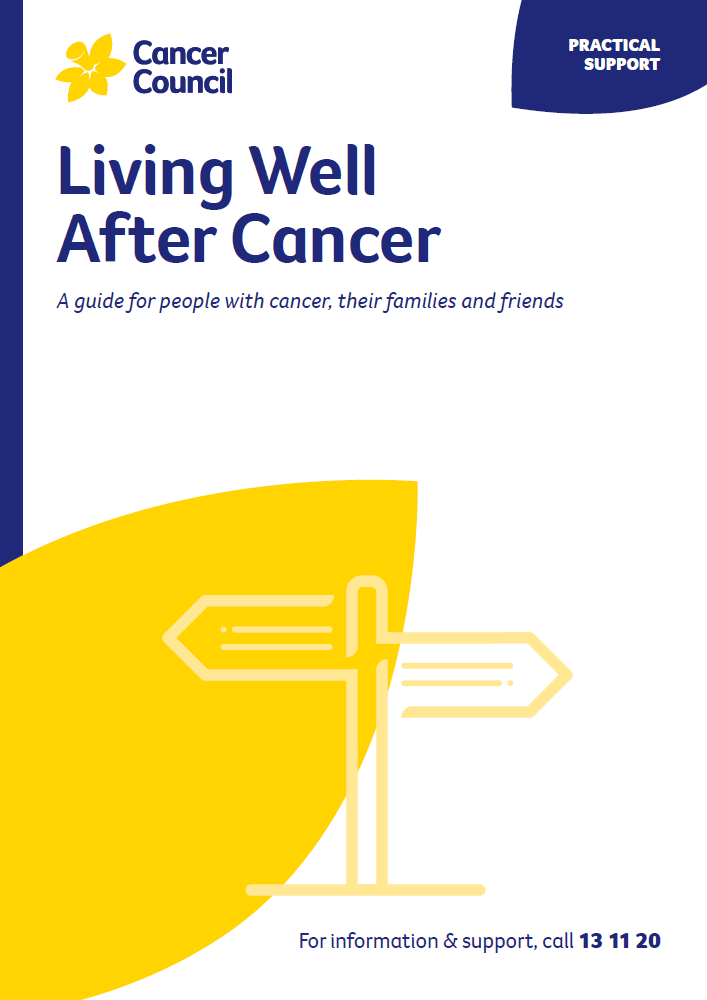Quit smoking
Smoking is the biggest preventable cause of cancer. It increases the risk of developing many types of cancer, including lung, bowel, ovarian, bladder, kidney, liver, oesophageal, pancreatic and stomach cancers.
If you smoke, Cancer Council strongly recommends that you quit. Stopping smoking has been shown to increase your expected survival time and reduce your risk of developing another type of cancer.
Choosing to quit smoking at any age will benefit your health. It can also improve your ability to be more physically active and help reduce alcohol consumption, both of which can help you maintain a healthy weight. Many people who smoke find it hard to stop. Seek support and don’t be put off if it takes several attempts before you’re able to quit for good.
How to quit smoking
- Visit iCanQuit or call Quitline on 13 7848 to talk to an advisor and request a free Quit Kit.
- Ask your doctor for advice about nicotine replacement therapy or prescription medicines to help you quit.
- Set a date to quit. Tell your family and friends so they can support you.
- Think of other attempts to quit as practice. Learn from what did and didn’t help.
- Make your home and car a smoke-free zone.
- Keep a list of all the reasons you want to quit.
- Do something else if you feel tempted to smoke (e.g. go for a walk, listen to music).
- Download an app such as My QuitBuddy from the App Store or Google Play. This can help you track your progress.
What about electronic cigarettes (vaping)?
E-cigarettes are battery-operated devices that heat a flavoured liquid to produce a vapour that users inhale into their lungs. The liquid can contain a wide variety of substances, including cancer-causing chemicals.
There is growing evidence that e-cigarettes are not safe, and can lead to serious health problems.
In Australia, people aged 18 years and over can buy e-cigarettes without a prescription from pharmacies. People under 18 years need a prescription to buy e-cigarettes. For up-to-date information about e-cigarettes, visit the Australian government portal About vaping and e-cigarettes.
Podcast for people affected by cancer
Listen now
Prof Michael Jefford, Medical Oncologist and Director, Australian Cancer Survivorship Centre, Peter MacCallum Cancer Centre, VIC (clinical review); Lucy Bailey, Nurse Counsellor, Cancer Council Queensland; Philip Bullas, Consumer; Dr Kate Gunn, Clinical Psychologist and Senior Research Fellow, Department of Rural Health, University of South Australia, SA; Rosemerry Hodgkin, 13 11 20 Consultant, Cancer Council WA; Prof David Joske, Clinical Haematologist, Sir Charles Gairdner Hospital and Clinical Professor of Medicine, The University of Western Australia, WA; Kim Kerin-Ayres, Clinical Nurse Consultant, Cancer Survivorship, Concord Hospital, NSW; Sally Littlewood, Physiotherapist, Seymour Health, VIC; Georgina Lohse, Social Worker, GV Health, VIC; Melanie Moore, Exercise Physiologist and Clinical Supervisor, University of Canberra Cancer Wellness Clinic, ACT; June Savva, Senior Clinician Dietitian, Nutrition and Dietetics, Monash Cancer Centre, Monash Health, VIC; Dr Elysia Thornton-Benko, Specialist General Practitioner and Research Fellow, University of New South Wales, NSW; Prof Janette Vardy, Medical Oncologist, Concord Cancer Centre and Professor of Cancer Medicine, The University of Sydney, NSW; Lyndell Wills, Consumer.
View the Cancer Council NSW editorial policy.
View all publications or call 13 11 20 for free printed copies.
